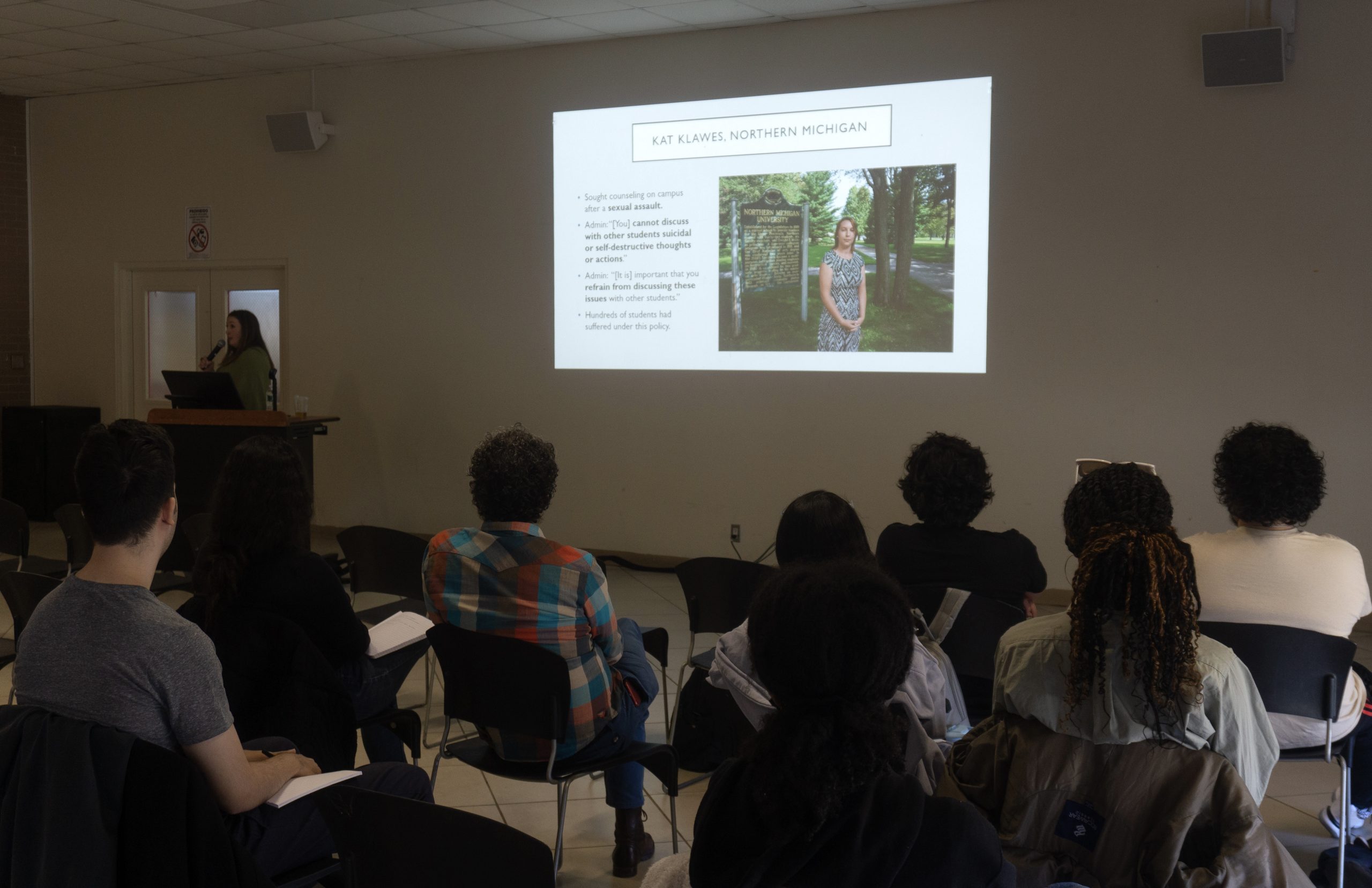On Wednesday, Feb. 15th, 2023, students and faculty gathered in the Patio Room for a timely conversation about the important topic of free speech and its effects both on and off campuses across the United States.
Hosted during Free Hour, the event featured guest speaker, Alex Morey, a prominent attorney and former journalist from the Foundation for Individual Rights and Expression (FIRE). In June 2022, FIRE announced it was expanding its efforts beyond college campuses to American society in general.
Morey’s presentation, entitled “Free Speech on Campus: From the Constitution to (Kan)ye” gave an opportunity to discuss the delicate balance between free speech and hate speech, as well as the legal implications of free speech in public versus private institutions.
She began the conversation by defining the difference between free speech and hate speech. She explained that while free speech is a constitutional right protected under the First Amendment, not all forms of hate speech are necessarily protected.
The conversation then turned to the implications of free speech on public versus private institutions. Morey explained that public institutions, such as CUNY and SUNY schools, are bound by the First Amendment, which means that they cannot restrict free speech unless it poses a clear and present danger or incites violence.
Private institutions, on the other hand, are not bound by the First Amendment and can set their own policies regarding free speech. While some private institutions may choose to uphold the principles of free speech, others may have more restrictive policies in place, such as Twitter or Instagram; as we’ve seen with Twitter’s ban of Donald Trump and Kanye West from the platform.
One important topic that was discussed was the role of student protests and how they relate to free speech on campus. Morey explained that while student protests can be a powerful way for students to express their views and exercise their right to free speech, they must be conducted in a way that does not infringe on the rights of others. For example, while students may have the right to protest a controversial speaker, they do not have the right to disrupt the event physically or prevent others from hearing the speaker.
Morey then discussed the difference between free speech in the United States and censorship in other countries. She highlighted the fact that the United States has a uniquely strong tradition of protecting free speech, which is enshrined in the First Amendment to the Constitution. By contrast, countries like France and Germany have more restrictive laws against hate speech, which can lead to controversial cases where individuals are prosecuted for expressing their views. These laws lead to those with hateful ideals to go underground, which Morey expressed is a concern as she’d rather ‘know who that person is in the room.’
These differences in approach to free speech have important implications for the way that individuals are able to express themselves and engage in dialogue, both on and off college campuses.
The event discussing free speech on campus was an important moment that allowed students and faculty to engage in a thoughtful and nuanced discussion about this crucial topic. The discussion highlighted the delicate balance between free speech and hate speech, as well as the legal implications of free speech in public versus private institutions. However, when taking questions from the audience, one professor regretfully wished that ‘the room were filled with students’ to learn more about their rights.
As we continue to grapple with these complex issues, it is clear that open and respectful conversation will be essential in shaping our understanding of free speech and its role in society.











